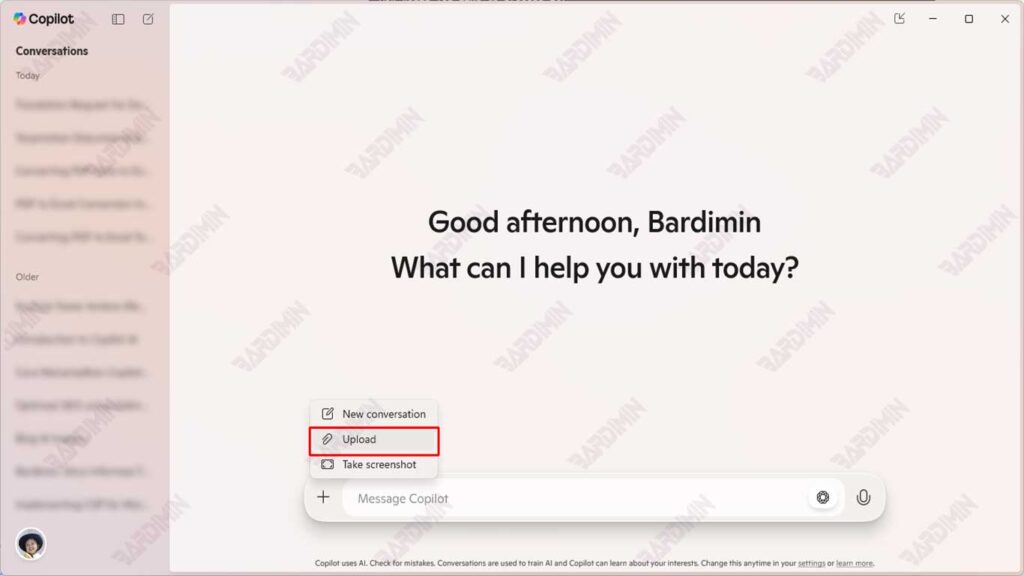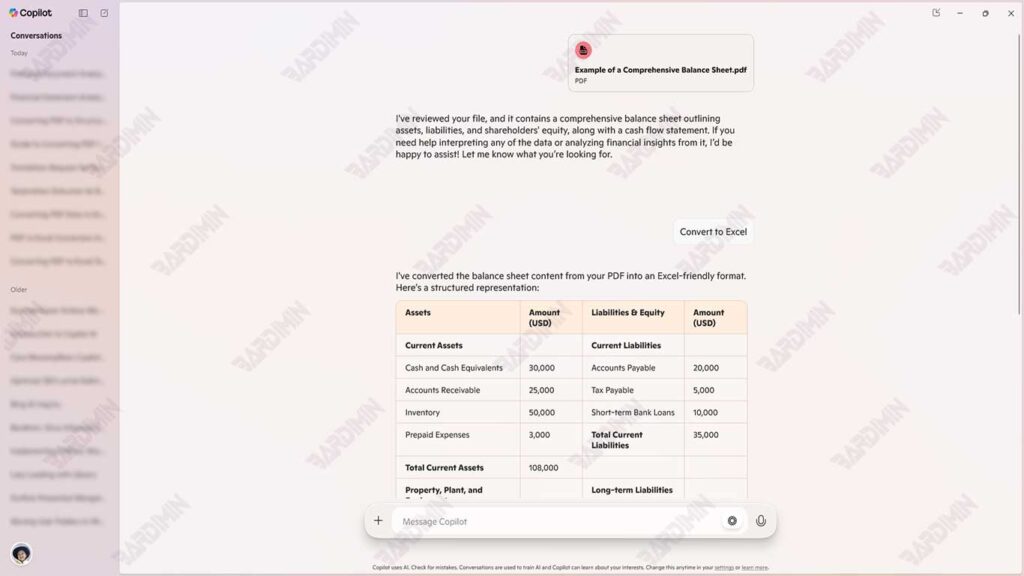“Imagine being able to convert 10 pages of PDF to Excel in 1 minute, without typing manually! With Copilot AI, this is not a dream. Check it out!”
Do you often spend hours just copying data from a PDF to Excel one by one? Or maybe your conversion results are usually messy, untidy, or even have errors? Relax, there’s now a fast, free, and highly accurate solution with Copilot AI!
1. Prepare PDF Files to Be Converted
Before starting the conversion process, make sure you’ve prepared a relevant PDF file and have a clear data structure.
Important Tips:
- Standard PDF format (not scan/image PDF) for best results
- Use PDF files that contain tables or structured data for maximum conversion results.
- Avoid files with multiple images, complex layouts, or inconsistent column formats.
- Avoid scanned PDFs (unless using OCR) or password-protected files
Copilot AI works best with text-based data that is easily recognized and processed automatically.
2. Access the Copilot AI Platform
Direct Access to Copilot AI
To use Copilot AI, visit the following official page:
This link leads directly to the web-based Copilot service center, where you can start typing prompts and use AI for a variety of needs, including converting PDF files to Excel.
Access Copilot AI Through Windows
If you’re a Windows 11 user, you can access Copilot AI directly from the operating system without opening a browser. Copilot is only available on Windows 11 version 23H2 or later.
Here’s how:
- Press Win + C on your keyboard
- The Copilot panel will appear on the right side of the screen
If the Win + C button is not active, you can activate Copilot through the Taskbar settings:
- Right-click on the Taskbar (bottom of the screen)
- Select Taskbar settings
- Enable the Copilot (preview) option in the “Taskbar items” section
- Once activated, the Copilot icon (shaped like a blue-green circle) will appear in the Taskbar
- Click on the icon to open Copilot
3. Upload PDF and Start the Conversion Process
How to Upload a PDF File
1. Drag & Drop Method (Fastest)
- Open Copilot AI in a browser (Chrome/Edge recommended).
- Drag the PDF file from your computer’s folder, then drop it in the Copilot chat area.
- The file will be automatically detected with a 📄 icon and a “Uploading…” status.

2. Manual Upload
- Click the + icon (Attach File) in the chat input field.
- Select the PDF file → Open.
- Wait for a preview to appear with the file name and size.
Starting the Conversion Process
Once the PDF file has been successfully uploaded, you can immediately start the conversion process using Copilot AI. Copilot will respond to your commands and display the conversion results automatically or in a downloadable format.
Here is a collection of effective and SEO-friendly command examples (prompts) to instruct Copilot AI in performing table conversion from PDF to Excel.
- Convert to Excel
- Convert the table from this PDF into an Excel spreadsheet.
- Extract all tables from this PDF and convert them into a clean Excel file with properly labeled headers and columns.
- Convert the PDF table to Excel and clean up the formatting. Make sure there are no merged cells, and apply auto column width.
- Extract Table 1 (Page 1) and Table 3 (Page 2) to Excel. Skip other tables.

Checking and Saving Conversion Results
Once the conversion process is complete, it is important to manually check the results to ensure that the data structure has been accurately transferred from PDF to Excel. Although Copilot AI is very advanced, sometimes the table structure of a PDF file can lead to inconsistent formatting in Excel.
Once the conversion and editing process is complete, the final step is to save the converted file in .xlsx format so that it can be reused, shared, or archived. You can do this easily through Excel Online or Excel desktop on Windows 11.


